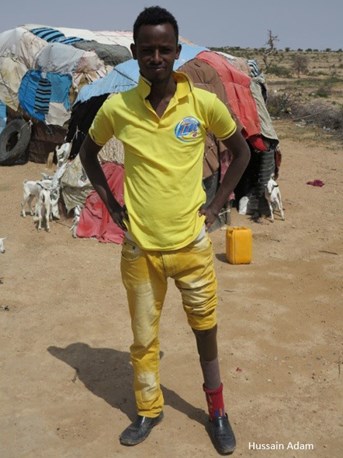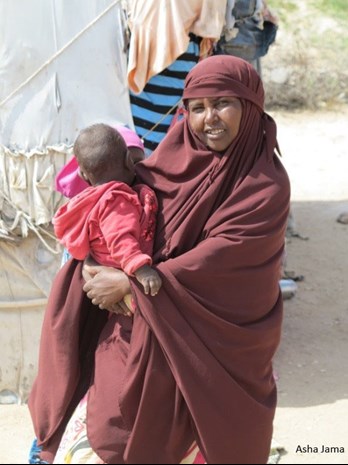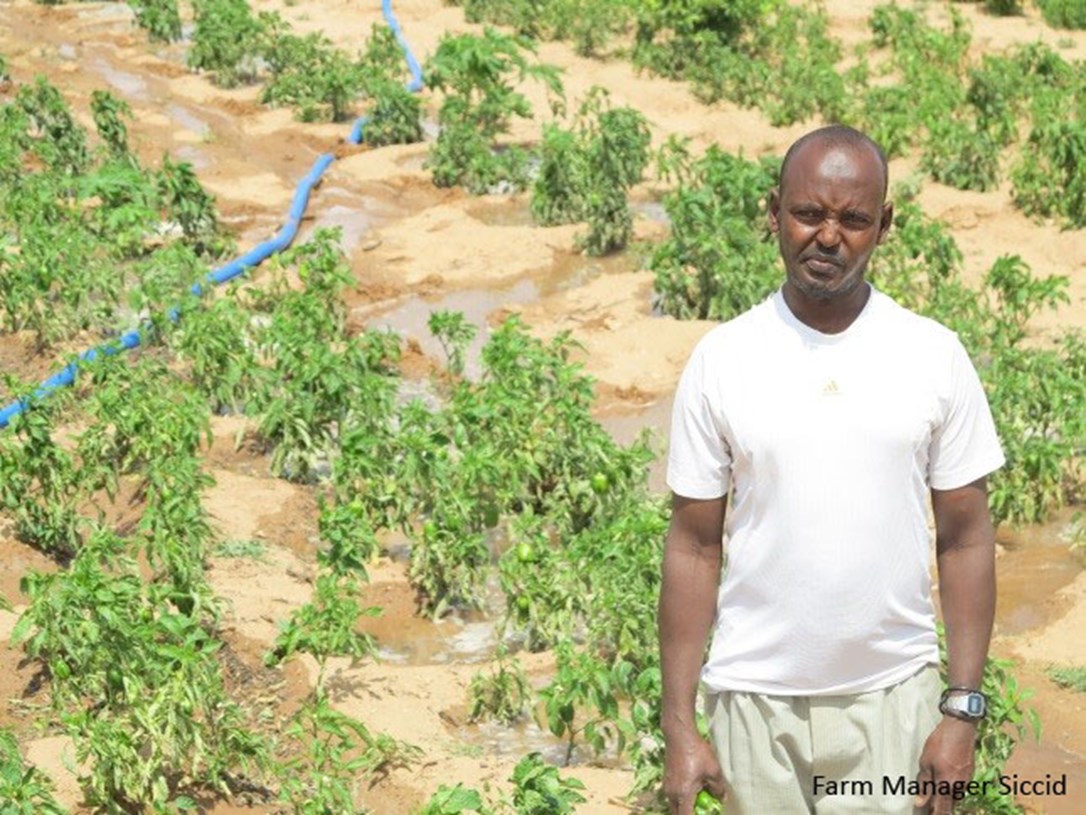The small village of Dhubato in the Waqooyi Galbeed region of Somaliland was used as a short-lived military camp for the Somali National Army (SNA) in 1989 during the Somali War. The SNA also reportedly laid defensive minefields of both Anti-Tank and Anti-Personnel mines there to counteract the Somali National Movement (SNM) and reduce the risk of ambush to their vehicles between the major cities of Hargeisa and Berbera.
The village’s history meant that several mine-related accidents occurred in the area during the 1990s, involving humans, animals and vehicles. The majority were linked to anti-tank mines, which have killed at least 4 people at Dhubato. The most recent accident was reported in 2002, when a vehicle activated an anti personnel mine. Although there were no fatalities, it highlighted the threat of mines and ERW to vulnerable local communities and their livestock. As a result, residents in the area around Dhubato remained reluctant to use the suspected sites for agriculture or grazing of livestock, often circumnavigating the sites in order to reach the tarmac road that provides access to the markets and services of Hargeisa, as well as a protected water pump stationed on the other side of the road. Due to these historical accidents and the community’s existing concerns The HALO Trust focused Norwegian resources on two separate sites close to the village of Dhubarto, clearing 5,984sqm to date.
Clearing land to build school
When the Norwegian Refugee Council revealed plans to construct a new school for the area in 2013, HALO worked closely with local beneficiaries and the NRC to establish a safe location for the construction away from the continuing hazards of mine clearance operations. Today the four-roomed school provides education for 130 students between the ages of 7-18. Around 50 pupils have daily access to education thanks to their ability to directly cross land cleared by by The HALO Trust. Meanwhile HALO and NRC’s cooperation encouraged other NGOs to invest resources in the area, including UNICEF, who funded the construction of four toilets and a kitchen to complement the main school building.
Funding university through enhanced livestock farming on cleared land.
Hussain Adam is a 23 year old high school graduate who lives with his parents and five siblings close to the Dhubato site cleared by HALO. He teaches mathematics at the school and earns a monthly salary of $220, funded directly by NRC.
Hussain lost his left leg in a mine accident in his early adolescence, on land later cleared by HALO. Both Hussain and his family were understandably cautious about investing in Dhubato following this tragedy. But with all hazardous areas now cleared, the family invested in more livestock and now graze a 400-strong herd of sheep and goats on the clearance area. Livestock sale brings the family an annual income of around $1800, which not only provides them with capital to reinvest, but finances Hussain’s university studies.


Asha Jama
Around 20 families live within 250 metres of the school and the clearance site directly behind it. Each family consists of approximately five people, many of whom own small herds of around 20 goats. Approximately 50 of the children from these families can now receive education by attending the NRC school, whereas previously they had to relocate to another school or simply not attend at all. This includes four of Asha Jama’s five children, who has lived in the community for nine years. Asha owns 12 goats, a small herd of livestock providing a much needed livelihood for her family with each animal fetching a price of $54 in Hargeisa. Prior to HALO’s clearance, she was unable to allow her livestock to graze widely for fear of injury to either her kin or one of her herd. With the area now free of hazards, her children can be educated safely, her animals can graze on abundant land, and she can finally live without fear of the explosive remnants of war.
Siciid’ story: a head farmer overseeing three farmhands
The release of cleared land has brought an increase in both subsistence and commercial farming around Dhubato. Large-scale farming in particular provides much needed employment for local people. Four months ago, Siciid helped to establish the largest farm in the area directly behind HALO’s Dhubato clearance. Employed as head farmer, earning $200 a month, he oversees the work of three other local farmhands, each earning $60 a month. The farm, owned by a resident of Hargeisa, covers 300,000sqm of land and is irrigated by either transporting or pumping water from the nearby river over the clearance site. This allows the cultivation of a variety of fruit and vegetables, including tomatoes, mangoes, oranges, peppers, chilies, garlic and onions.
With more safe land now available and higher investor faith established by the clearance, Siciid is already looking to expand the workings of the farm, further diversify the crops grown and employ more local workers. Vehicles are now able to directly access the farm by travelling over the clearance site to both plough the land and transport the farm’s produce to Hargeisa for sale at the markets.





 Visit our HALO USA website
Visit our HALO USA website
